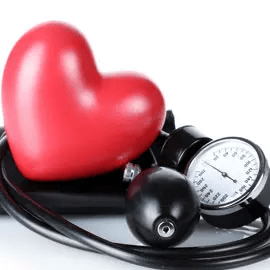Obesity and Heart Disease
 Heart disease is one of the leading preventable causes of death in the United States. Every year, about 600,000 Americans die from heart disease. That is one death every minute related to heart disease. If you are overweight or obese, you are at higher risk of developing heart disease. Losing weight is one of the more effective ways of reducing that risk.
Heart disease is one of the leading preventable causes of death in the United States. Every year, about 600,000 Americans die from heart disease. That is one death every minute related to heart disease. If you are overweight or obese, you are at higher risk of developing heart disease. Losing weight is one of the more effective ways of reducing that risk.
Risk factors associated with cardiovascular disease:
- Obesity and excessive weight
- High cholesterol
- High blood pressure
- Smoking
- Type 2 diabetes
- Poor nutrition
- Excessive alcohol intake
The above risk factors can contribute to heart disease. If you are obese or overweight, your chances for developing one of these risk factors is higher than a person of healthy weight, increasing your chances of developing a serious cardiovascular disorder.
Cardiovascular disorders associated with obesity include:
- Coronary artery disease. This is a result of plaque buildup in your coronary arteries. This buildup causes the arteries to become narrowed, restricting blood flow to the heart. Those who are obese tend to have higher cholesterol levels, leading to plaque buildup.
- Arrhythmia or abnormal heart rhythms. Electrical conduction issues within the heart occur more frequently when the heart is damaged by coronary artery disease or other cardiac disorder.
- Heart failure. This is when the heart is severely weakened due to heart attack, coronary artery disease or other conditions that overwork the heart.
- Heart attack. This can occur when the heart muscles are starved of oxygen due to narrowed or hardened artery walls or blood clots.
- Vascular disease. Vascular diseases like peripheral artery disease or aneurysms can occur due to high blood pressure and the hardening of the arteries outside of the heart.
Preventing and Treating Heart Disease
If you are struggling with obesity or any obesity-related disorders, the most effective way to prevent heart disease is by losing weight and making long-term lifestyle changes. This includes modifying your diet, exercise behaviors and reducing avoidable risk factors like smoking. Losing weight may be difficult if obesity is something you have struggled with long-term. There are many effective options to aid in weight loss such as medical weight loss that provides meal replacement, education and in some cases, medication. Weight loss not only lowers your chances of developing heart disease, but can also help reduce the effects of any existing conditions.
